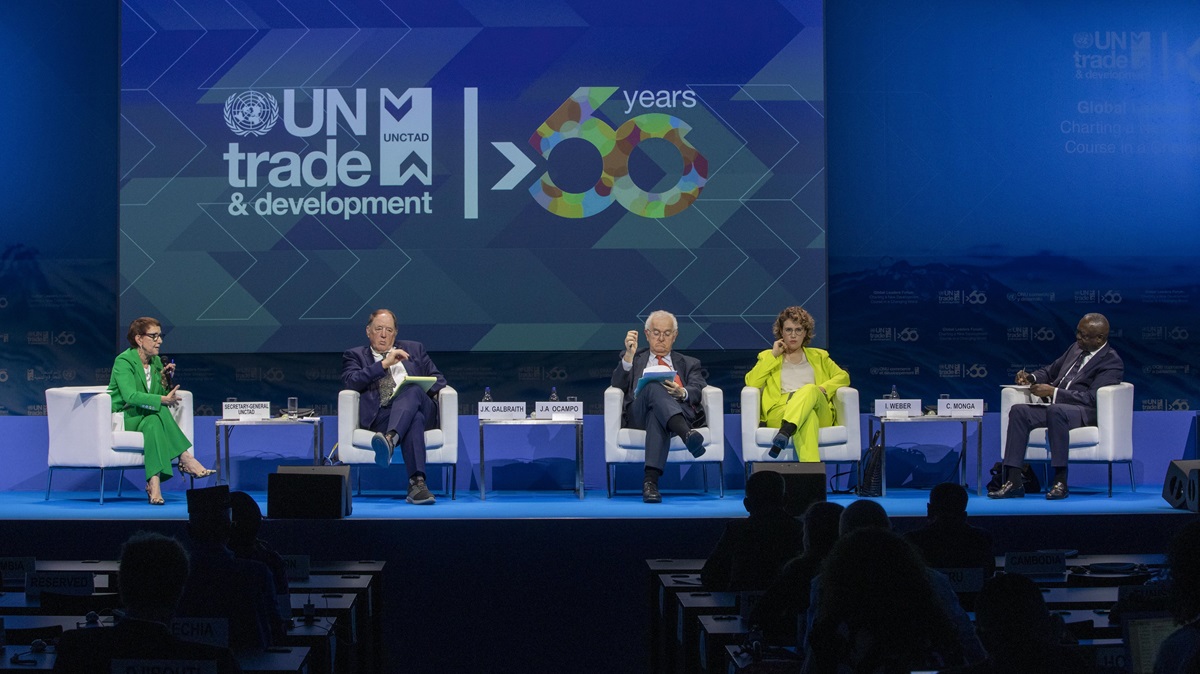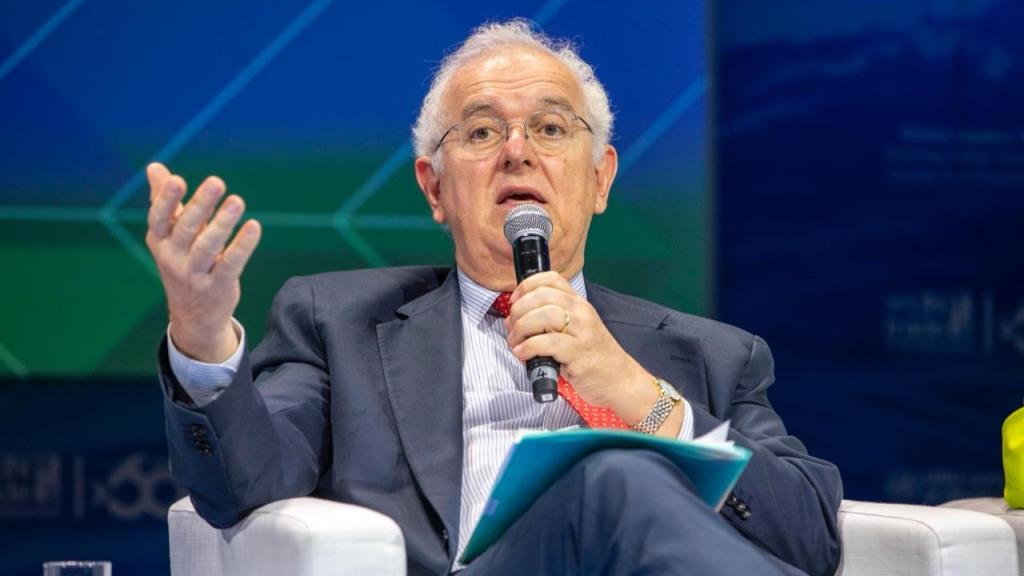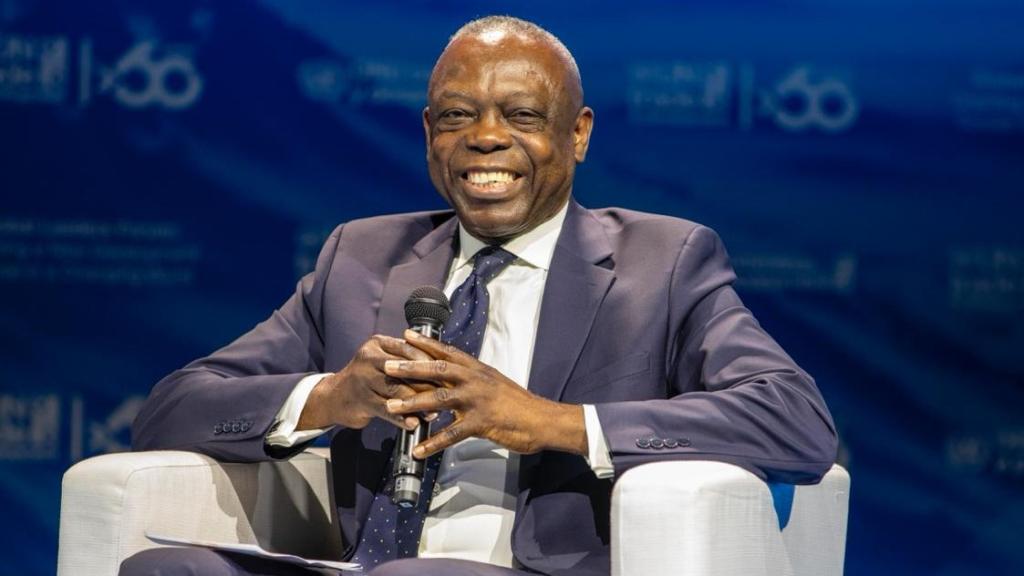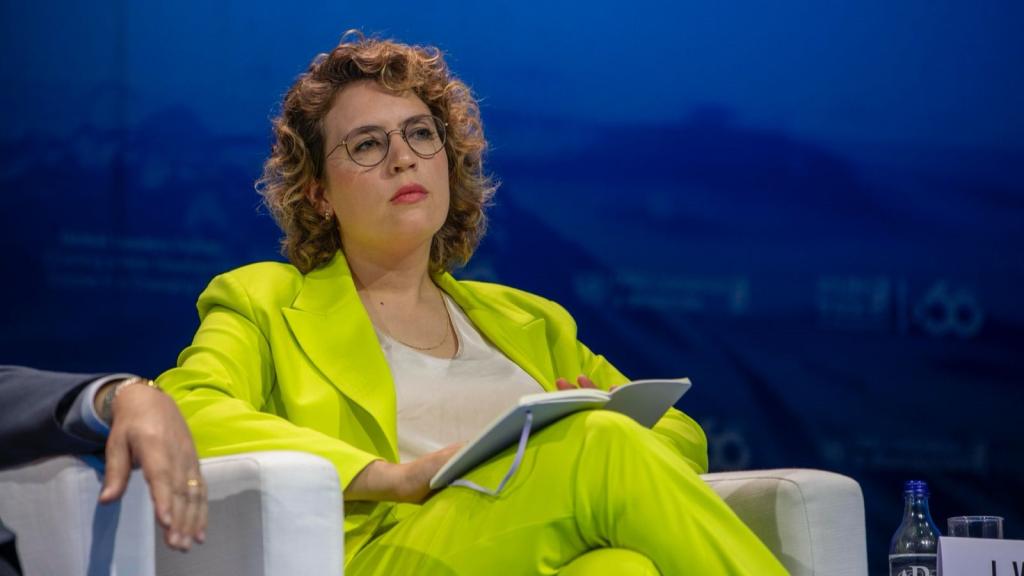With the global economy at a critical juncture, they suggested solutions for complex challenges, including managing debt, promoting trade, diversifying economies and reducing inequalities.
© UN Trade and Development | (From left to right) UN Trade and Development Secretary-General Rebeca Grynspan and professors James K. Galbraith, José Antonio Ocampo, Isabella Weber and Célestin Monga.
Leading economists convened on June 14 for the final day of the Global Leaders Forum marking the 60th anniversary of UN Trade and Development (UNCTAD).
Professors José Antonio Ocampo (Columbia University), Célestin Monga (Harvard University), Isabella Weber (University of Massachusetts Amherst) and James K. Galbraith (University of Texas) addressed pivotal questions about the future of trade, development and global stability.
Today, the global economy is at a critical juncture, similar to when UNCTAD was created six decades ago during a period of rapid change marked by decolonization, the breakdown of the Bretton Woods system and the dawn of the ICT era.
The world now faces a similar inflection point, marked by trade restructuring, security erosion and technological upheavals. Climate change and demographic shifts compound these challenges.
The economists highlighted solutions for complex challenges, from managing debt and promoting trade to diversifying economies and reducing inequalities.
In the discussion moderated by UN Trade and Development Secretary-General Rebeca Grynspan, they underscored the need for strong institutions and the limitations of one-size-fits-all development approaches, reaffirming UN Trade and Development’s crucial role in helping developing countries navigate the evolving landscape.
José Antonio Ocampo: ‘Debt is the most important financial issue today’
José Antonio Ocampo, a professor at Columbia University’s School of International and Public Affairs, said debt was the most important financial issue today.
Global public debt surged to a historic peak of $97 trillion in 2023, growing by 90% since 2010. Currently, about 3.3 billion people live in countries that spend more on debt interest payments than on education or health.
Mr. Ocampo advocated for a robust institutional framework to manage debt negotiations, along with ad hoc mechanisms to handle the current crisis.
“Many developing countries, both low and middle-income, have a massive debt problem, and there are no institutions in place to manage this issue," he said.
He also highlighted the volatility of private financing, calling for national regulations on capital flows to mitigate financial instability. “Private financing comes in a very unstable way, with bumps and busts. When it goes bust, it is more expensive."
Célestin Monga: ‘If you want to lift people out of poverty, you need to take trade seriously.’
Célestin Monga, a professor at Harvard’s John F. Kennedy School of Government, underscored trade as the sole reliable engine for long-term growth.
“There's no other credible alternative,” he said. “If you want to lift people out of poverty, you need to take trade seriously," Mr. Monga asserted.
He stressed the importance of aligning macroeconomic and microeconomic policies with trade and highlighted the need for the Global South to diversify its markets.
Mr. Monga pointed out that despite the geographical proximity of Latin America, the Caribbean, and Africa to the West, these regions have not benefited as expected due to the politicization of trade.
Isabella Weber: ‘Diversification is critical to development. There can be no question about it’
Isabella Weber, a professor at the University of Massachusetts Amherst, underscored the critical role of diversification in development. She warned against over-reliance on commodities and highlighted the importance of stabilizing basic industries.
"I would say that diversification is critical to development. There can be no question about it," Ms. Weber said. "The idea of comparative advantages and specialization sounds very nice in economic theory but ends up not really translating into empirical reality.”
“If we look at the structures of rich countries, they are all incredibly diversified," she added.
Ms. Weber emphasized the need for countries to move beyond their basic commodities. "You need to start doing other things, move into other industries, upgrade, and move up the value chain. But you also need to pay attention to the basic commodities you are dependent on and stabilize them."
James K. Galbraith: Inequality is a sign of trouble and a looming crisis
James K. Galbraith, a professor at the University of Texas’s Lyndon B. Johnson School of Public Affairs, stressed the importance of regulating inequality within and between countries.
He compared economic inequalities to biological or mechanical control systems.
"Within countries, the control of inequality is a regulatory function. We can think of it the same way a biological organism controls its temperature or its blood pressure," Mr. Galbraith explained, saying that rising inequality signals underlying problems in a country or system.
He highlighted the dual approach needed to address inequality, emphasizing the importance of eliminating poverty and raising the bottom while also controlling the excesses of the wealthy.
Mr. Galbraith also criticized the global financial system's reliance on financiers, saying the 2007-2009 crisis showed how unstable it is, especially for vulnerable countries. He emphasized that debtor unity is essential for reasonable negotiations, noting, "There has never been a creditor who willingly negotiated a debt contract if he thought the benefit was going to another creditor.”





